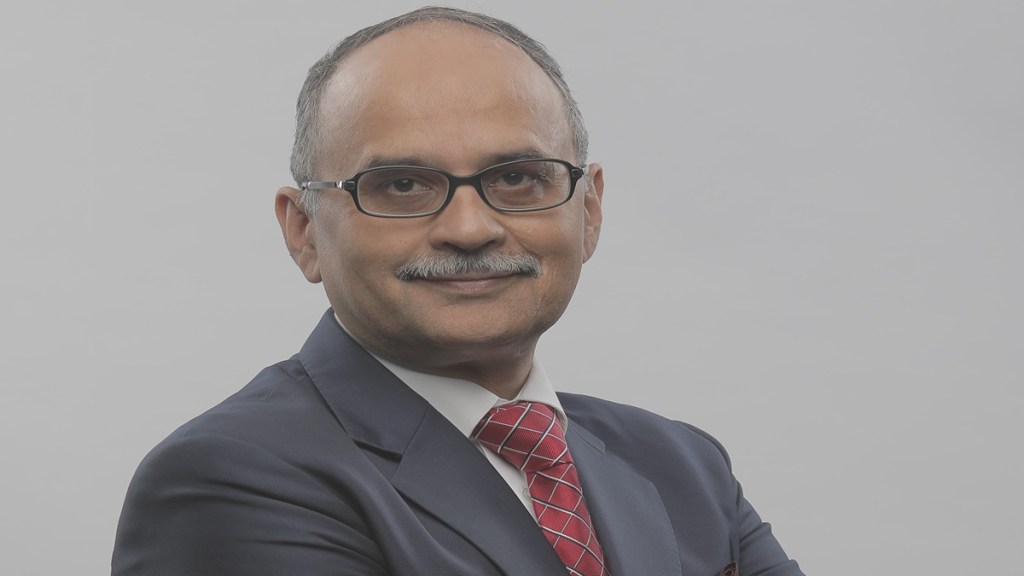Tata Capital Growth Fund II recently invested in Auxilo Finserve, an education finance-focused NBFC last year. Akhil Awasthi, managing partner, Tata Capital Growth Fund, speaks to Raghavendra Kamath on the investor’s plans and investment strategy.
Which sectors are looking attractive for you to invest now?
The sectors that we like should be using some amount of leverage and businesses should be at that stage where scale advantages will start kicking in, which means fixed costs will not increase in relation to business growth. And, of course, there is sufficiency of margins. That we are now in an era where commodity prices are going up and down. And if I do, assuming I do Cello like business, so you know I buy plastic pellets and produce something out of it. But if my margins are low, the commodity cycle will take it away.
How much of Fund 2 has been invested and how much dry powder is left?
We have invested more than 50% and dry powder is left for next 12 months or so, at least. So, this fund is about $180 million.
Are you planning to raise new funds in the coming year?
Yes, that is the business. We will have to do it.
How big will be the new fund?
We expect that the next fund would be bigger in magnitude, but I wouldn’t like to guess a number right now because we will await approval from our board for our fundraise plan.
What kind of deals you are currently working on?
We are looking at India-based QSR, healthcare services transactions, among others. We are looking at an interesting branding of a food business, which is an off-the-shelf product to eat. This is not QSR. It’s an off-the-shelf food product like a biscuit or a ‘mithaai’. And we are also looking at a chemicals business.
So, something like a hospital is an apt sector, which will benefit from a certain amount of leverage. It has the ability to increase prices a little bit. Because of medical inflation at least you can pass this on, so at least the margins are stable. It also benefits as individuals in tier 2 and 3 towns have aspirations of a much higher quality of service and of infrastructure when they go to a hospital.
In manufacturing, EV supply chain and sustainability-related products will be a great place to get in. Of course, there is a certain element of an IP-related peculiarity that will come in this business, but we are trying to look at EV businesses which are not just assembly ones, but which are adding certain amount of value that is very difficult to replace.
Investment bankers are saying these deals take longer because of longer due diligence. Do you agree with that?
I think one thing definitely is there that everybody in the system, whether it is lawyers, auditors or investment bankers, is super busy as there is a lot of activity. Deal closure is a different thing. I would tend to agree with my colleagues that deals are taking longer. Valuation, diligence are sometimes the issues. Sometimes there are multiple parties because deals are also bigger. Sometimes they involve more than one private equity fund. And then it is always difficult to get two parties to agree to anything. So, bottom line is things are taking longer and it’s partly an indication of great activity that we are having in this private equity ecosystem, that everyone is so busy.
Do you think exits are becoming difficult in the current market, especially through the IPO route?
I’m talking about a longer period. So, we have been investing, and Tata Capital has been in private equity for the last 14 years. In that context, this is still a good time to do an IPO. But yes, the best time for an IPO was in 2020 and 2021, when of course a lot of companies went public. I think good companies can still do an IPO.
One of the interesting things that I would like to share with you regarding us is that money is money. All PE funds can write cheques. But we, being supported by the Tata Group, are able to bring interesting benefits for our portfolio companies. So, of course our diligence is much more robust. We not only rely on the traditional methods of diligence, which is lawyers, audit firms and customers, but we are able to tap into the ecosystem and usually there will be a Tata company or a Tata employee who’s now related in some way there that we can tap and therefore our diligence is more robust and sometimes quicker. The second thing that we’re able to do is to add value to our portfolio companies. We are very quickly able to assess the steps to be taken to improve a business. And finally, I think when we are looking for exit, because again of our reach, we are able to explore strategic exits more comprehensively than others.
Will you also explore buyouts apart from buying minority stakes? Will you change your strategy?
Buyouts are difficult for us because one, of course, is we don’t want any company to become a Tata company just because we have invested in that company. And that’s a very, very high ask for any company of the size that I mentioned to you. For them, it will be difficult to adhere to all standards of the Tata Group, so we don’t want Tata to be a majority shareholder. But I think, more importantly, we are in this business to generate returns for our investors. And we want to find right entrepreneurs, which in India are plenty, with ambition to build the business and ultimately own it as it goes forward and becomes a larger enterprise. So, for us, minority will work fine, at least for the next fund that we talked about. Minority would continue to be the way forward.

